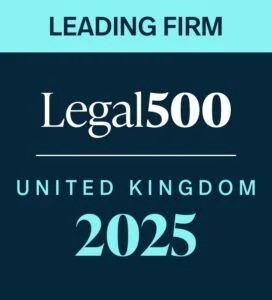What is The Bletchley Declaration?
The Bletchley Declaration ("Declaration") is a world-first agreement on the safe and responsible development of frontier AI. The Declaration was signed at the AI Safety Summit 2023 on 1 November 2023 aiming to coordinate global cooperation on Artificial Intelligence safety.
Who has agreed to the Declaration?
The Declaration sees twenty-eight countries from around the world including the UK, the US, Japan, China, Korea, India, Canada, Australia, as well as the EU and others, agreeing to a joint global effort to ensure ‘…AI is developed and deployed in a safe, responsible way for the benefit of the global community.’
What is the focus of the Declaration?
The Declaration aims to safely and responsibly regulate "frontier AI" which is defined (in the Declaration) as:
"...highly capable general-purpose AI models, including foundation models, that could perform a wide variety of tasks..."
At present, frontier AI is assumed to pose the highest risk and was highlighted as urgently requiring regulation.
What are the goals of the Declaration?
The main ambitions of the signatories can be summarised as:
- International Cooperation - the Declaration emphasised the need for international cooperation to address the inherently global risks posed by AI. Signatories are to recognise the importance of using governance that is proportionate, methods that are pro-innovation and a regulatory approach that exploits the benefits and considers the risks associated with AI.
- Risk Identification - the Declaration detailed risks posed by AI in connection with issues such as fairness, accountability, regulation, safety, human rights, appropriate human oversight, transparency, bias mitigation, and data privacy. It articulated risks as being issues of control relating to alignment with human intent, cybersecurity, biotechnology, and potential deliberate misuse.
- Risk Mitigation - the Declaration specified that risk could be mitigated through systems for evaluations, safety testing, and other appropriate measures.
- AI Potential and Extent - the Declaration emphasised the use of AI systems across many areas of society including housing, employment, transport, education, health, accessibility and justice. It also emphasised the potential of AI to transform public services such as health and education. There is also some cross-over with the achievement of future ESG goals as the Declaration acknowledged the potential of AI in relation to food security, science, clean energy, biodiversity and climate with reference to strengthening efforts towards the achievement of the United Nations Sustainable Development Goals.
What has been agreed?
The Declaration established a shared understanding of the global opportunities and risks posed by AI and the need for global governments to work together to meet the most significant AI-related challenges by way of regulation and ensuring technology is developed in a safe and responsible manner.
The Declaration has two key acknowledgements. Firstly, emphasis is placed on global opportunities and challenges presented by AI. Secondly, it acknowledges that AI is no longer a futuristic concept and is already being applied in various aspects of daily life (see AI Potential and Extent above).
Also emphasised is inclusivity and collaboration to bridge the digital divide between developing nations and those that already have the capability to use AI. An agreement was achieved with regard to the urgent need to understand and collectively manage potential risks through a new joint global effort to ensure AI is developed and deployed in a safe, responsible way for the benefit of the global community.
What will happen in the future?
The Declaration concluded on a note of encouragement by underlining the positive potential of AI whilst seeking to commit to ongoing global dialogue, research, and cooperation to harness the power of AI in a responsible manner. The Republic of Korea will host a mini (virtual) AI summit within the next six months. The AI Security Summit is expected to become an annual event and France will host its next edition in 2024.
How 3CS can help
Our team of corporate compliance lawyers has both domestic and international expertise and offers a full range of corporate compliance legal services. For further information on AI-connected matters and how they may affect your company, or help with any corporate compliance legal matter please get in touch with your usual 3CS contact.


















